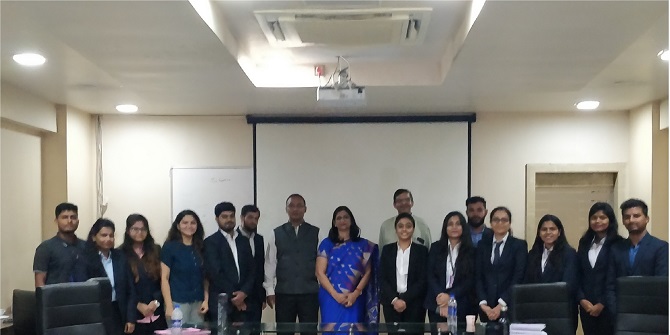During a recent industry interaction on the subject, we witnessed passionately expressed viewpoints from the panelists pointing to a perpetual phase lag between the syllabus covered in our educational institutions and what the industry requires fresh graduates to already know…
Industry representatives, including business managers, vociferously opined that fresh graduates are not at all industry-ready and significant additional resources and time need to be expended post recruitment, to prepare fresh graduates to contribute meaningfully…..
On the other hand the well-represented academic community, especially those responsible for designing courses and coordinating placements at colleges strongly countered, that the industry does not come forward with their requirements to help align the course-design and they bring-up the misalignment issues, only during the placement season….
While we come across this apparent disconnect more, in areas connected with functional and general business education, the same applies in scientific education and research as well.
Here’s my quick take on the issue and what are some of the solutions being attempted by stakeholders..
The syllabus including case-studies are prepared through generalization of past experiences and learning from situations and initiatives in industry, government and non-profits. Creating case studies for future reference is usually not considered a priority in most business organisations, these are taken up by consultants, former employees etc and often find their way to the academic community well after the event . Adoption of these case studies and learning in the syllabus, after due consideration and availability of faculty to teach the same, usually takes a while longer.
While top tier institutes and conglomerates have already made progress in this area and many of us have benefited from HBR Case studies, corporate academies, short-term resident programs etc , the vast majority of academic institutions and businesses represented by the academic and the practicing communities need to find new ways to collaborate, aligning their apparently different motivations..
Some businesses are running their own dedicated courses at academic institutes and there are others that have moved their campus-recruitment schedule forward like recruiting students in the 3rd year in a four year graduation course, so that the syllabus and practical training of selected students can be pre-aligned with the requirements of their prospective employer. This provides a degree of certainty for the student in terms of a career and the college in terms of successful placement , while ensuring that the student pursues acquisition of specific knowledge , that is required by the business ie the prospective employer.
Then there are some academic institutions that are designing courses in collaboration with businesses . For example . we at Apex Group are conducting a joint certification module in Logistics, Supply Chain Management and International Trade, along with the MBA course in a leading B School in Western India. This could perhaps be a good place to start..
No alt text provided for this image
In a rapidly changing world, where universities are becoming powerhouses of training and R&D and businesses are competing globally, strategic partnerships and collaboration among stakeholders in the academia and industry, including investments in time and resources would bring mutual and societal benefits.
What do you think could be done to further improve collaboration among these stakeholders ?






